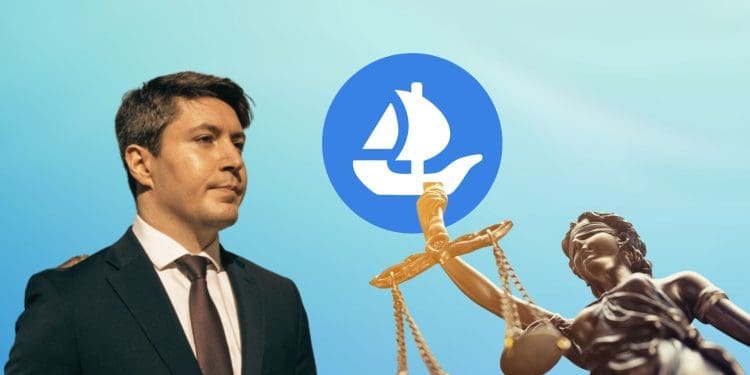- Nathaniel Chastain, former OpenSea executive, was convicted in May 2022 of fraud and money laundering for profiting from insider knowledge of which NFT collections OpenSea would feature.
- As head of product, Chastain bought NFTs from collections before they were spotlighted on OpenSea’s homepage, then sold them after hype increased their value, making over $50,000.
- Chastain is now appealing his conviction by arguing the insider information was not technically OpenSea’s property to defraud them of, though prosecutors say it still constituted wire fraud.
Nathaniel Chastain, a former executive at the NFT marketplace OpenSea, was convicted in May 2022 of fraud and money laundering for profiting from insider knowledge of which NFT collections would be featured on OpenSea’s homepage. Chastain made over $50,000 by buying up NFTs from collections before they were spotlighted, then selling them after hype increased their value. Now, Chastain is appealing his conviction by arguing the insider information he used was not technically OpenSea’s property.
Chastain’s Scheme at OpenSea
As head of product at OpenSea, Chastain was responsible for choosing which NFT collections would be highlighted on the marketplace’s homepage. Chastain routinely bought NFTs from collections that he planned to feature, waiting until the spotlight drove up demand before selling at a higher price. In total, he made over $50,000 through this insider trading scheme before getting caught in 2021.
Chastain’s Legal Argument on Appeal
In an appeal filed this week, Chastain’s attorneys argue that the insider information he exploited was not technically OpenSea’s property. They acknowledge his actions were unethical but claim he did not defraud OpenSea because the information did not deprive OpenSea of anything valuable. However, prosecutors state this still constituted wire fraud since he improperly used insider knowledge to enrich himself.
Chastain’s Sentencing and Aftermath
Despite facing up to 20 years in prison on each charge, Chastain received a relatively light sentence in August 2022 – three months in prison, three months house arrest, and a $50,000 fine. Prosecutors hailed it as the first conviction for digital asset insider trading. On appeal, Chastain’s attorneys argue the case was unprecedented and that OpenSea did not even feel victimized. The appeal outcome will set a key precedent around insider trading of NFTs and other digital assets.
Conclusion
The Chastain case marked uncharted legal territory, as no executive had previously been convicted for insider trading of NFTs. While OpenSea condemned his actions, Chastain argues the information he exploited did not technically count as company property. The appeals court decision will likely establish important precedents around insider trading in Web3.














